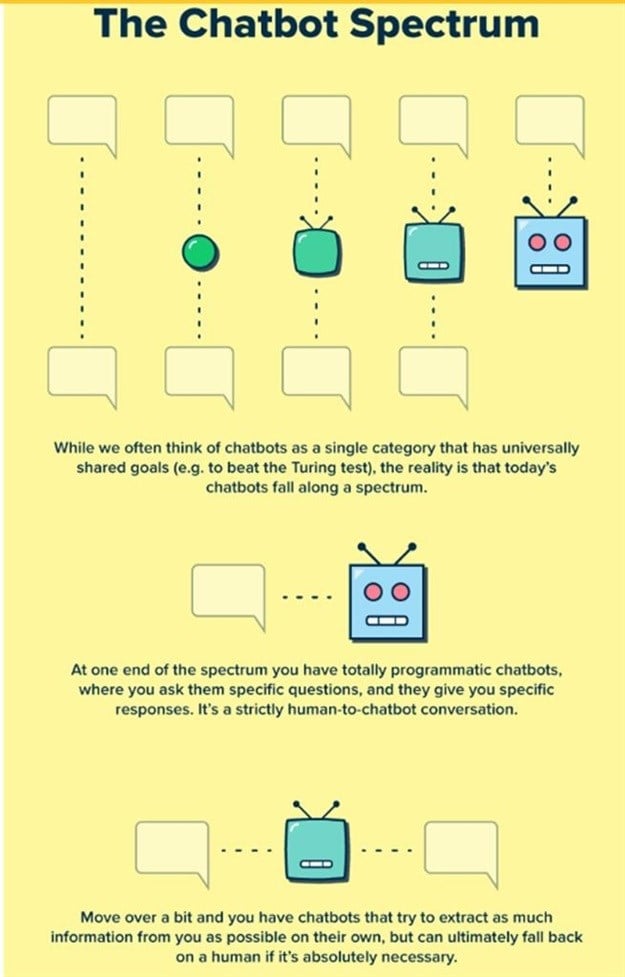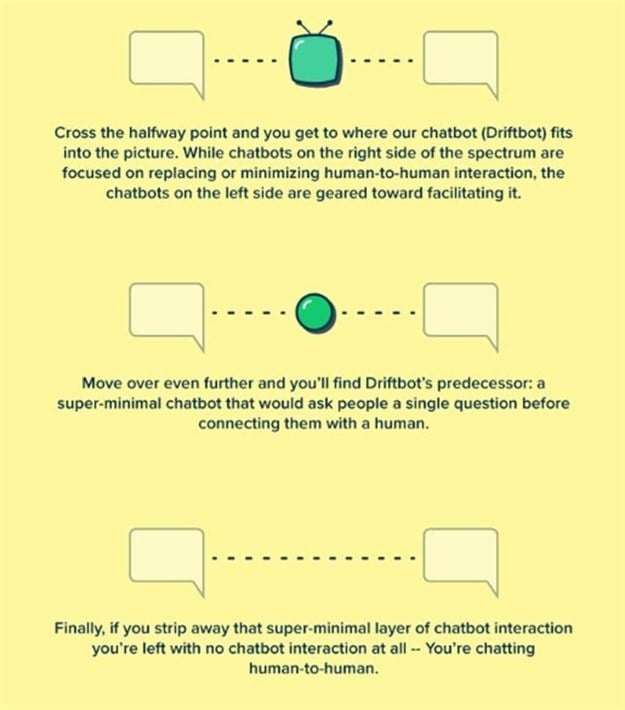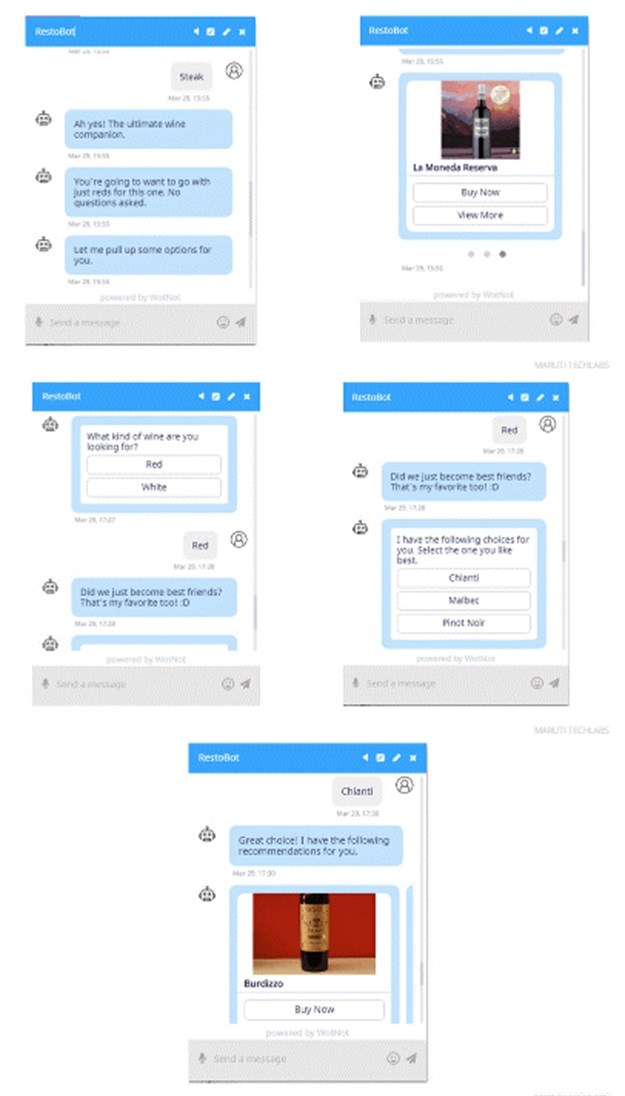Don't talk to me, talk to my chatbot

Basically, chatbots function within messaging apps (enabling businesses to provide customer support 24/7, answer customer queries or provide complaint resolutions through the likes of FB Messenger, WeChat etc.).
The tip of a billion-dollar industry
Chatbots have artificial intelligence (AI) at the heart of them. The former is powered by machine learning and the latter is only capable of interacting by following pre-programmed rules.The fact is that chatbots are still in their infancy, and what we’re experiencing is just the tip of a billion-dollar industry in the space of 10 years. But the adoption of chatbots is catching on and large companies such as Uber, Sephora and CNN have fully adopted this technology.
Chatbots are always available, they’re never rude, tired or irritated – they’re pleasant 24/7/365. This is why chatbots are prevalent in customer service related industries. A key driver for this has been the adoption of smartphone technology with IM (Instant Messenger) being the primary means of communication. IM is being adopted at a faster rate than social networks, with over 4.1 billion users worldwide using Facebook Messenger, WhatsApp, WeChat and Slack as examples. Consumers are so used to instant communication in their private lives that they expect the same when they communicate with companies.
Service-related and transactional conversations
According to Research and Markets, the chatbot market is expected to reach revenue of $3.1bn by 2021. Although South African consumers predominantly purchase goods in store, 76% of people are using their mobile devices to get more information from online sources, to help make their buying decisions.
The aim of a successful chatbot is to create an experience where users feel like they’re speaking to a human being instead of to a sophisticated bot that is continually learning and optimising itself based on other user interactions.
The possibilities are immense in retail, financial services, travel, hospitality and even in utilities for service-related and transactional conversations:
- Government: Chatbot technology has the potential to be a valuable tool in helping to transform the way people engage with government departments. Chatbots are able to communicate in any language, and they learn through engagement.
- Financial services: Users would be able to converse with the bot just as they would with a human being, providing advice or assisting with new accounts in any of our 11 official languages. Chatbots are also able to better understand the customer’s needs and requirements in a friendly and always-on manner.
- Hospitality: Gartner predicts that by 2020, 85% of enterprise-customer relationships will be managed without human interactions. It will be possible to interact with restaurants through IM with an emoji. Chatbots will be more than capable of taking reservations, placing orders and even recommending wine pairings if requested to do so. The bot will be able to remember this interaction for future interactions.
Chatbots are already being used in the hotel industry, in their operational processes, and are reporting a good ROI.
- Healthcare and education: At the International Aids conference in Durban, MomConnect was launched by the Praekelt Foundation which has the potential to revolutionise healthcare in South Africa. The aim of this bot is to provide maternal health advice through the use of cell phone technologies. It is free to all users, and more importantly, it is available in all 11 official languages.
- The Legal Arena: In June of 2016, news broke that a lawyer chatbot service successfully contested 160,000 out of 250,000 (64% success rate) parking tickets in London and New York (for free). DoNotPay was created by a 19-year-old, second-year law student from Stanford University!
- Education: National Geographic Kids UK has launched a chatbot to teach young children about dinosaurs. Conversational learning is more fun and interactive.
The possibilities are endless.
South African chatbots
Chatbots are everywhere, we may not even realise that we’re interacting with one. As examples, we’re already able to place food orders online and are given constant updates on the time of delivery and the cost thereof. We are able to order rides from Uber and we know exactly where our driver is.
Some South African examples:
- Savant is on Twitter and chats about current scientific trends, research topics or market moves. It represents Sentient Labs ZA.
- KeiraBot – This is a real estate bot that connects you to your dream home.
- Hazie – This is a job recruitment bot that will connect you to your dream job.
- IFRS Rookies – This is an AI tutor for tomorrow’s accountants specialised on IFRS.
- Chatbots Magazine predicts that:
- Every business is going to have a bot – Messaging apps are growing fiercely and if messaging apps become the number one way in which people communicate, then every business is going to need a way to engage on these platforms.
- Bots will be faster than websites and mobile apps – Currently, bots are still learning BUT they’ll get to the point where the experience of talking to a business via a bot is at least as good as using its website or mobile app. It will be quicker and easier to talk to a bot and will, therefore, be preferred.
- Bots will be easier to use than any other technology ever created – Language is the most natural interface humans understand, and that’s the interface that bots use. We won’t have to interact with buttons, text and images which can be cumbersome when interacting with different sites. In five to ten years, bots will be able to understand you completely – in whatever language you choose to use. In the future – talking to a bot will be like talking to a real person who has instant access to entire databases of information, and can process your thoughts and desires instantly!
So, in short, every business needs to get a bot in order to communicate with people on message apps, and bots need to provide as much value as a website or mobile app.
Here’s a brief history of chatbots (Chatbots Magazine):

There is a spectrum of chatbots (Chatbots Magazine):


The most important takeout is that we need to embrace this AI technology and make it work for our brands within our consumer interactions because it’s coming, whether we like it or not!
About Belinda Kayton
View my profile and articles...
